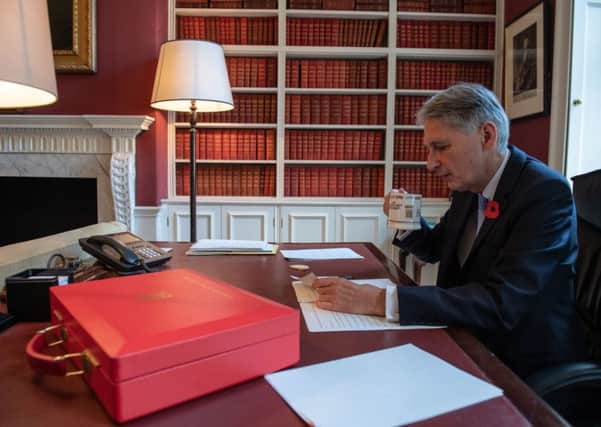Budget reaction: Hammond serves up a mixed bag for business owners


This potentially gives additional tax savings of almost £220,000 (or £266,000 for spending on certain fixtures) over the period by accelerating the allowances available.
Spending on new commercial structures and buildings will qualify for a new 2 per cent annual allowance, for contracts entered into after 29 October. However the rate for long-life assets and certain building fixtures has been reduced by 2 per cent to 6 per cent from next April.
Advertisement
Hide AdAdvertisement
Hide AdThe compliance burden for medium and large businesses continues as the “off payroll working” rules which apply in the public sector will be rolled out to the private sector from April 2020.
The onus will now be on businesses to decide whether the rules apply to any individuals who work through their own company. With businesses required to pay employer NICs, as well as deducting income tax and employee NICs from any payments to the worker’s company, the cost of incorrect categorisation is potentially eye watering. Unsurprisingly, the full detail of the rules will be subject to further consultation.
There was also good news for (most) entrepreneurs. Following speculation that entrepreneurs’ relief would be abolished, it is welcome to see the Chancellor acknowledge the importance of this popular relief, worth up to £1m to business owners, albeit the minimum ownership period has doubled to two years.
There was a sting in the tail for certain companies which utilise “growth shares” and other more complex shareholding arrangements. New measures introduced with immediate effect will now restrict this relief where the minimum shareholding of 5 per cent does not also entitle the owner to at least 5 per cent of the distributable profits and net assets.
But will there be a growing divide between Scottish and UK income taxpayers? Previous commitments by the UK government to raise the personal allowance to £12,500 and basic rate limit to £37,500 are to being implemented one year early. From 6 April, the higher rate tax threshold will rise from £46,350 to £50,000, resulting in an annual income tax reduction of up to £860 per year for those south of the Border.
With income tax on earnings, pensions and property being a devolved to Scotland, where the higher rate tax threshold is far lower at £43,430, we must await the Scottish Budget on 13 December to complete the picture for Scottish taxpayers.
Finally, the announcement of a targeted relief for the cost of acquiring Intellectual Property-rich companies in an effort to stimulate investment in business should be good news for tech start ups.
However, in contrast, technology giants will be forced to pay tax on the sales they generate in the UK from April 2020.
- Kevin Meaney is a tax partner at Anderson, Anderson & Brown